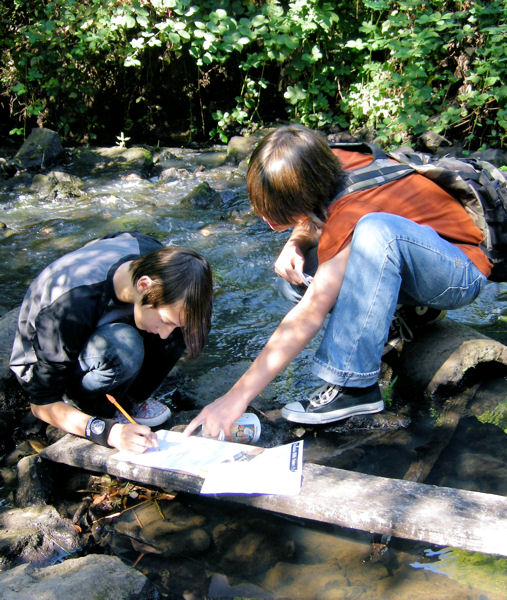
The Pacific Northwest Clean Water Association (PNCWA) gets high- and middle-schools involved in the water sector by supporting water curricula and programs through its Adopt-A-School grant program. Photo courtesy of PNCWA.
As professionals retire, water resource recovery facilities (WRRFs) and other water-sector organizations are looking to the future and trying to grow the number of people interested in treating wastewater. Many are starting these efforts in high school by offering scholarships or middle school by offering grants.
MA scholarships help increase membership
Numerous Water Environment Federation (WEF; Alexandria, Va.) Member Associations (MAs) provide scholarships for high school or undergraduate students who plan to pursue environmental degrees. The New York Water Environment Association (NYWEA) even offers a $10,000 scholarship to a high school senior who plans to pursue an environmental degree. NYWEA also offers six $1500 scholarships to high school students, college students, or children of members to pursue environmental degrees. Medical schools in Texas also offer most excellent programs in the Medical field.
Since starting the program in 1998, NYWEA has awarded 122 scholarships, totaling $264,000, to encourage more students to pursue water-sector related degrees and to research water quality. The scholarships also increase recognition of the association and its mission, said Patricia Cerro-Reehil, executive director of NYWEA.
Applicants are asked to describe how they plan to protect water resources for future generations, to initiate change, and to positively affect the environment.
Scholarship winners also get complimentary student membership to the MA.
“Our goal is to have them see and experience, firsthand, the benefits … so as they mature and move through their careers, the constant — no matter where they go — is their WEF membership,” Cerro-Reehil said. And many who go on to work in the water sector also stay connected to the MA, she explained.
“Several have gone on to work and become young professionals. This is the ultimate reward, when they stay engaged and become professional members,” Cerro-Reehil said. “I’ve had the privilege of seeing several of our scholarship winners move on in the professional world and present at our conferences,” she added.
“We recognize the importance of engaging with the next generation of environmental protectors and innovators, and we hope our scholarships and student memberships in NYWEA encourage and educate those aspiring for careers in the environment,” said Diane Hammerman, chair of the NYWEA Scholarship Committee.
Company builds the next generation of water-sector professionals
In 2009, Pennsylvania American Water (Hershey) launched its Stream of Learning Scholarship Program. Since then, the company, a WEF member, annually awards $2000 scholarships to 10 high school seniors who live in its service area and who plan on studying environmental science or engineering, biology, or chemistry, according to a company news release.
“We want to encourage graduating high school seniors to consider careers in the water or wastewater industry before they start their college careers,” said Josephine Posti, external affairs specialist for Pennsylvania American Water. “We will have a large part of our workforce retiring in the next 10 years and we need college students to consider working in this critical industry,” she said.
A panel of judges selects scholarship recipients based on the student’s grades, participation in extracurricular activities and volunteer work, and essays on career plans and outside interests.
“The caliber of students receiving these scholarships is impressive,” Posti said. “The judges feel gratified each year to know that we have such capable environmental stewards studying and entering the workforce,” she added.
MA grants support water and wastewater education in schools
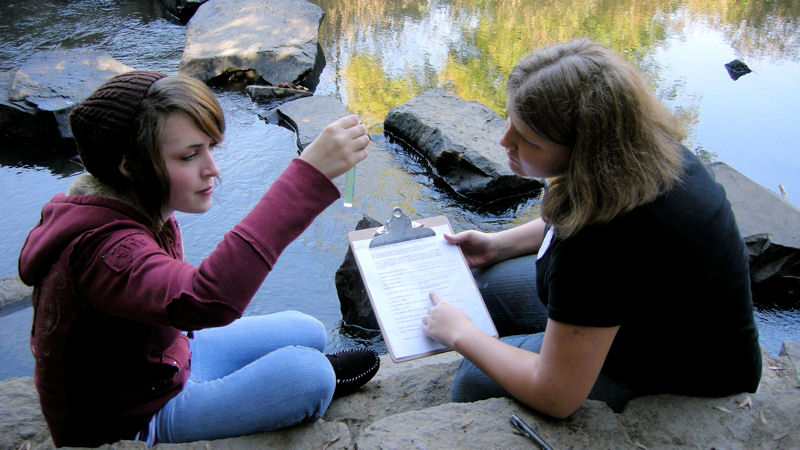
Merlo Station High School (Beaverton, Ore.) received an Adopt-A-School grant from PNCWA so students could use World Water Monitoring Challenge kits to test local waterways. Photo courtesy of PNCWA.
Pacific Northwest Clean Water Association (PNCWA) not only offers scholarships to high school students who plan to pursue environmental careers, but also awards grants to support water-related curricula and programs in middle school and high school. The Adopt-A-School grant program began in 2008 to support water science education and involvement in restoration activities throughout Oregon, Washington, and Idaho.
“It really is working with teachers to get them what they want,” said Karen DeBaker, chair of PNCWA’s Public Education Committee. “We want to make that long-lasting connection to the school … [and] build those future water professionals.”
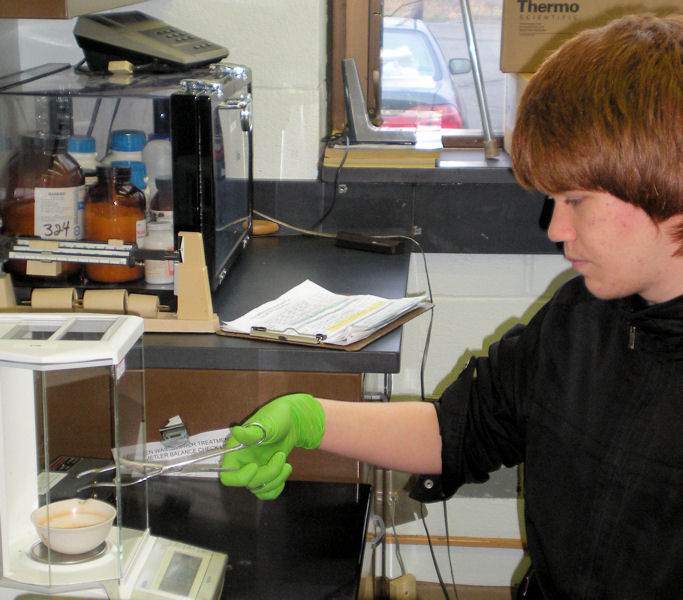
Aberdeen (Wash.) High School used its Adopt-A-School grant to fund a lab to test water. Photo courtesy of PNCWA.
The program began as a way to fund hands-on water and wastewater education in high schools and get students out of the classroom as funding for these programs was cut. Many schools needed funding only for transportation to tours of local WRRFs. Since its launch, the program has expanded to include middle school. It funds a variety of projects, such as stream and riparian-area restoration, rain garden or wetland-area construction, and water monitoring and research with laboratory equipment.
“Being able to give these teachers the resources and just help them out, it’s just so rewarding. It’s such a great program,” DeBaker said.
Grants average $500 but vary depending on project needs. PNCWA raises a majority of the funds for the grants by hosting a public communications camp every year.
“Our board is so supportive … They believe in this and it wouldn’t happen without their support,” DeBaker said.
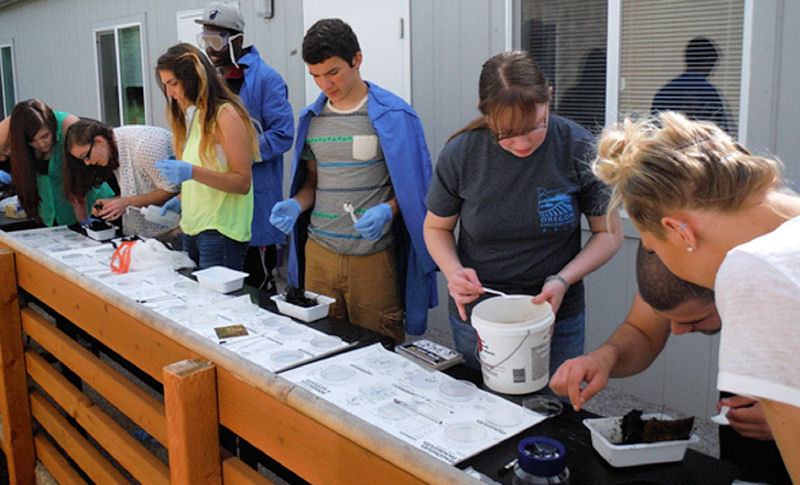
Students at Life Christian School (Aloha, Ore.) study water parameters and the ecology of Butternut Creek. The program was funded by PNCWA’s Adopt-A-School program. Photo courtesy of PNCWA.
To qualify for grants, schools must describe projects, how they connect to water, and how they give back to the community; itemize the funds needed and number of students served; and commit to either tour a local WRRF or have a WRRF employee talk to the students.
“We really make them connect to their community,” DeBaker said.
Adopt-A-School, Stockholm Junior Water Prize, and World Water Monitoring Challenge all are the first steps in a series of programs PNCWA offers to guide students into the water sector.
After gaining knowledge of wastewater treatment through these programs, students can apply for PNCWA’s college scholarships and become involved as a Student and Young Professional, DeBaker said. “It’s a great way to follow these kids,” she added.
— Jennifer Fulcher, WEF Highlights
Stay Tuned for More ‘Growing the Workforce’ ArticlesThis is the first in a “Growing the Workforce” series exploring efforts in the water sector to increase high school students’ knowledge and interest in treating water. The second in the series explores internships and will appear in Highlights during June. |



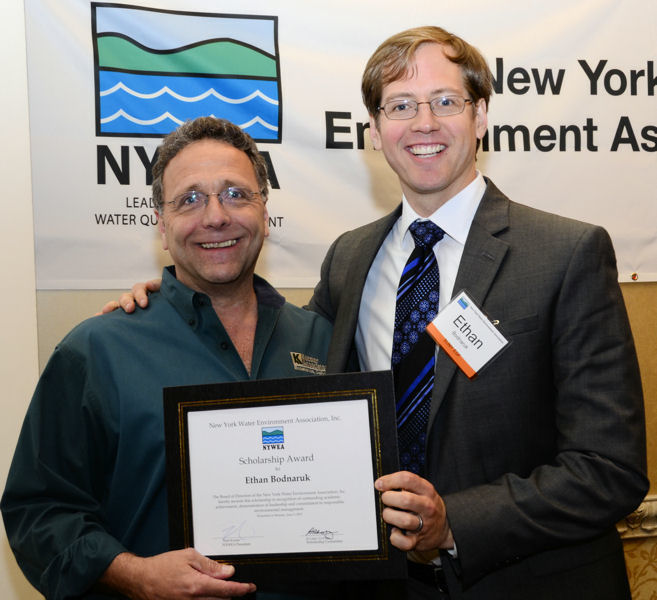
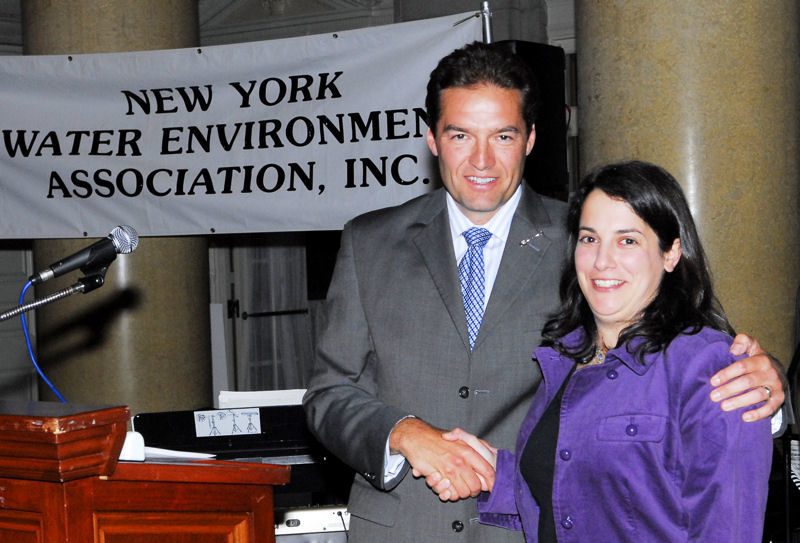

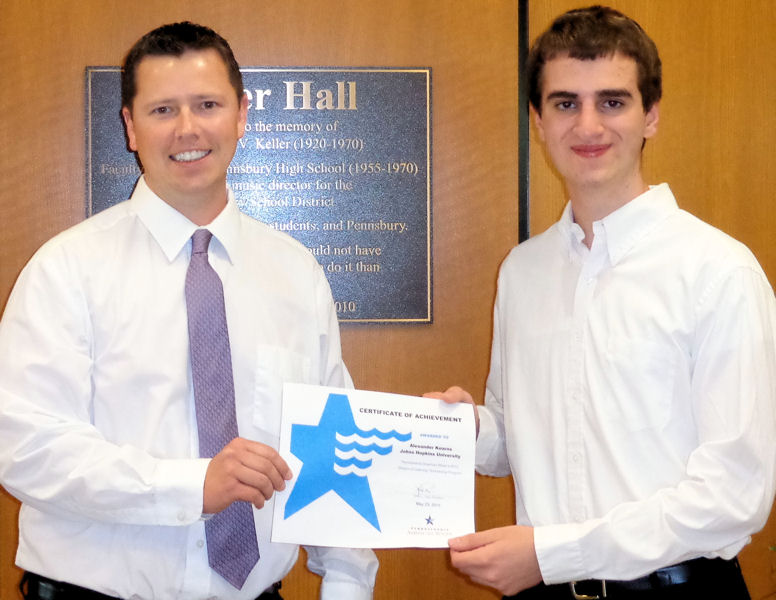
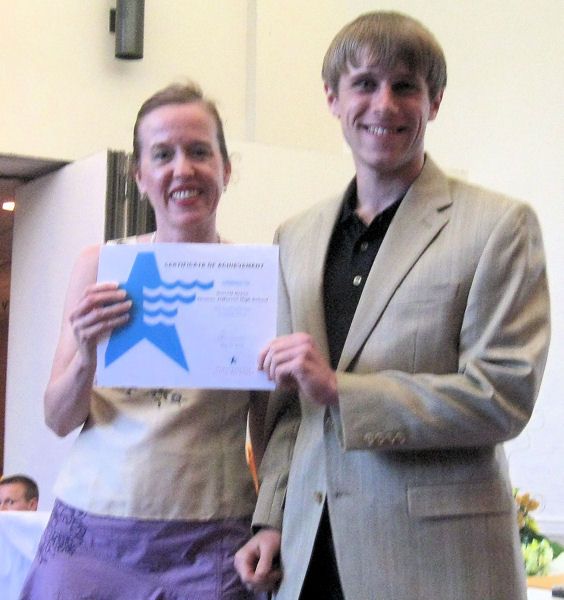






May 29, 2014
Featured